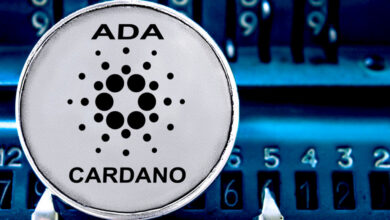Difference Between Centralized and Decentralized Crypto Exchange

Centralized and decentralized crypto exchanges differ in how they operate, the degree of control they have over user funds, and the level of trust users must place in them.
What is a Crypto Exchange?
A crypto exchange is a platform where people can buy, sell, and trade cryptocurrencies. Cryptocurrencies are digital assets that use cryptography to secure and verify transactions and to control the creation of new units. Examples of popular cryptocurrencies include Bitcoin, Ethereum, and Litecoin.
Crypto exchanges act as intermediaries that facilitate transactions between buyers and sellers of cryptocurrencies. They allow users to convert fiat currencies, such as US dollars or Euros, into cryptocurrencies and vice versa. Users can also trade one cryptocurrency for another on these platforms. Crypto exchanges typically charge fees for their services, such as transaction fees, withdrawal fees, and deposit fees.
Centralized and Decentralized Crypto Exchange
Crypto exchanges can be centralized or decentralized. Centralized exchanges are owned and operated by a single organization, while decentralized exchanges are built on a blockchain network and allow users to trade directly with one another without the need for a middleman. Each type of exchange has its own set of advantages and disadvantages, and users should consider their needs and priorities when choosing a crypto exchange.
What is a Centralized Crypto Exchange?
Centralized crypto exchanges are owned and operated by a single organization. They are essentially a middleman that connects buyers and sellers of cryptocurrencies. These exchanges are highly regulated, and users must go through a KYC (Know Your Customer) process to verify their identity. Centralized exchanges control the custody of user funds and act as custodians. Users can buy, sell, and trade cryptocurrencies using the exchange’s platform. The exchange sets the price for buying and selling, which can be influenced by market demand and supply. Centralized exchanges are generally more user-friendly, offer higher liquidity, and faster transactions.
What are The Pros and Cons of Centralized Exchanges?
Centralized exchanges (CEXs) offer several advantages over decentralized exchanges, but they also have some drawbacks. Here are some pros and cons of using CEXs:
Pros:
- Liquidity: CEXs generally have higher liquidity compared to DEXs, which means that users can buy or sell cryptocurrencies at the price they want. This can be particularly important for users who want to trade large volumes of cryptocurrencies.
- User-friendly: CEXs are generally more user-friendly compared to DEXs, particularly for users who are new to cryptocurrency trading. They often have intuitive interfaces and offer a range of tools and features to help users trade effectively.
- Advanced features: CEXs may offer more advanced features compared to DEXs, such as margin trading, derivatives trading, and advanced order types. These features can be attractive to experienced traders who want to execute complex trading strategies.
- Customer support: CEXs typically offer customer support to users, which can be helpful if users encounter issues or have questions about the platform.
- Security: While CEXs are centralized and may be more vulnerable to hacks and security breaches, they often implement robust security measures to protect user funds. For example, they may store funds in cold wallets, use multi-factor authentication, and employ advanced monitoring systems to detect suspicious activity.
Cons:
- Centralization: CEXs are owned and operated by a single organization, which means that users must trust a central authority with their funds. This can be a concern for users who value decentralization and privacy.
- Vulnerability: Because CEXs are centralized, they may be more vulnerable to hacks and security breaches compared to DEXs. If a CEX is hacked, users’ funds may be at risk.
- Regulation: CEXs are subject to government regulations and may be required to comply with Know Your Customer (KYC) and Anti-Money Laundering (AML) laws. This can limit the anonymity and privacy of users.
- Fees: CEXs may charge higher fees compared to DEXs, which can eat into users’ profits. Fees may include trading fees, withdrawal fees, and deposit fees.
- Accessibility: CEXs may not be accessible to users in countries with strict financial regulations or in countries where traditional banking systems are limited. This can limit the accessibility of cryptocurrencies to a global audience.
What is a decentralized crypto exchange?
Decentralized crypto exchanges (DEXs), on the other hand, are open and permissionless platforms built on a blockchain network. DEXs are designed to be trustless, meaning users don’t have to rely on a centralized authority to hold their funds or facilitate transactions. Instead, they use smart contracts to execute trades and allow users to retain full control over their funds. Transactions are processed on the blockchain network and recorded on a public ledger. Users do not have to go through a KYC process and can maintain their anonymity. DEXs are generally more secure, transparent, and censorship-resistant compared to centralized exchanges. However, they may have lower liquidity, slower transaction times, and may require more technical knowledge to use.
What are The Pros and Cons of Decentralized Exchanges?
Decentralized exchanges (DEXs) offer several advantages over centralized exchanges, but they also have some drawbacks. Here are some pros and cons of using DEXs:
Pros:
- Decentralization: DEXs are built on blockchain technology and are not controlled by any central authority. This means that users have full control over their funds and can trade directly with each other without intermediaries. This eliminates the need to trust a central authority with their funds, which can be particularly important in countries with unstable financial systems or in situations where censorship is a concern.
- Security: Because funds are stored in users’ personal wallets, rather than in a centralized location that could be targeted by hackers, DEXs are generally considered more secure than centralized exchanges. Additionally, DEXs use smart contracts to execute trades, which means that there is no single point of failure that could be exploited by attackers.
- Privacy: DEXs typically do not require users to provide personal information or complete KYC procedures, which allows users to maintain their privacy and anonymity. This can be important for users who are concerned about government surveillance or who live in countries with strict financial regulations.
- Transparency: Because DEXs are built on blockchain technology, all transactions are recorded on a public ledger that is transparent and immutable. This means that users can verify the accuracy of all transactions and ensure that the platform is operating fairly.
- Access: DEXs are accessible to anyone with an internet connection and a cryptocurrency wallet. This can be especially important for users in countries where traditional banking systems are limited or for people who do not have access to traditional financial services.
Cons:
- Liquidity: DEXs may have lower liquidity compared to centralized exchanges, which can result in higher trading fees and longer transaction times. This can make it difficult for users to buy or sell cryptocurrencies at the price they want.
- Complexity: DEXs may be more difficult to use compared to centralized exchanges, particularly for users who are new to cryptocurrency trading. This can be a barrier to entry for some users.
- Limited functionality: DEXs may have limited functionality compared to centralized exchanges. For example, some DEXs may not support certain trading pairs or advanced order types.
- No customer support: Because DEXs are decentralized and not controlled by any central authority, there is no customer support available to users. This means that users must rely on themselves to resolve any issues that may arise.
- Risk of scams: Because DEXs are open and permissionless, anyone can create a DEX, which means that there is a risk of scams and fraudulent platforms. Users must be cautious and do their research before using a DEX.
Conclusion:





